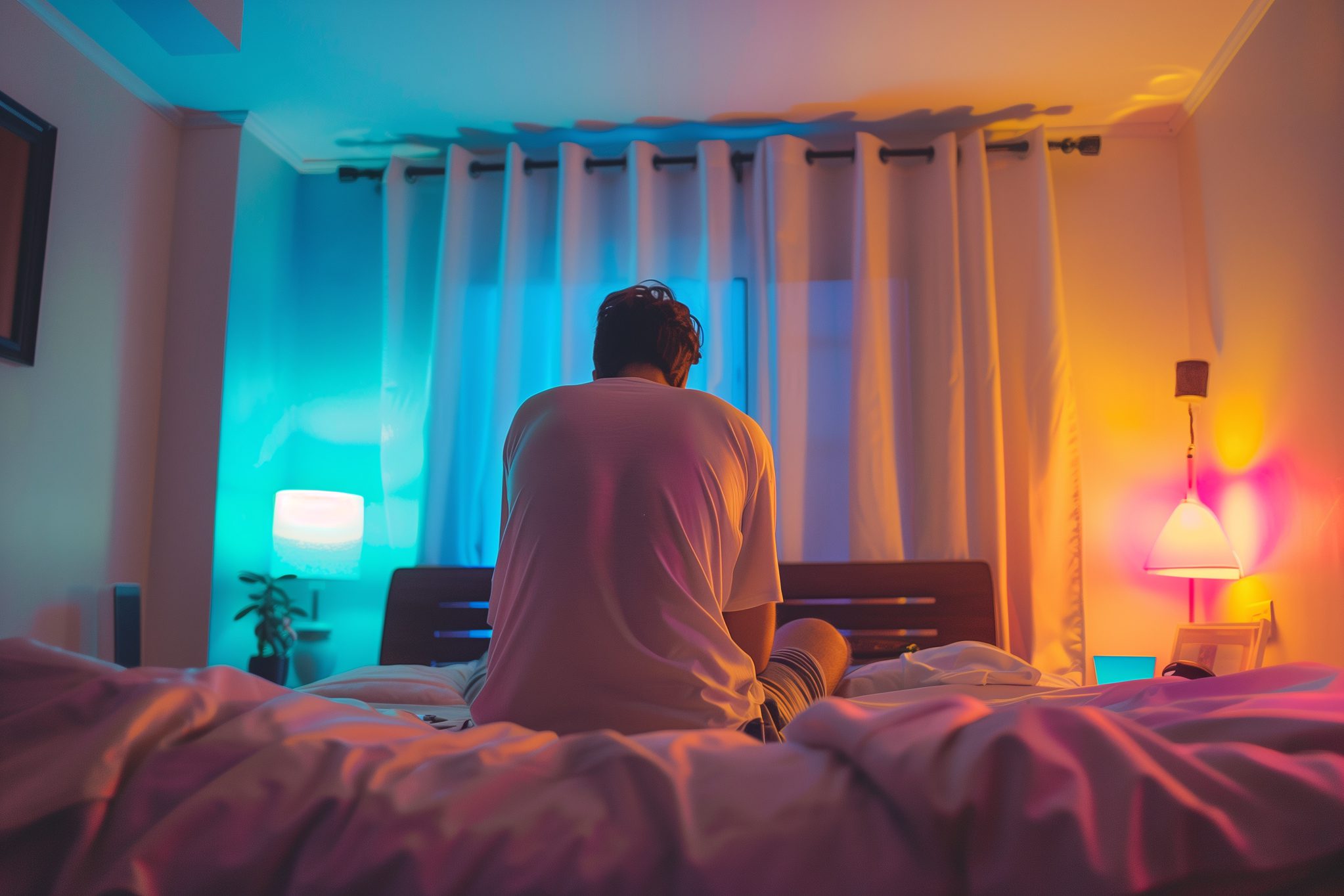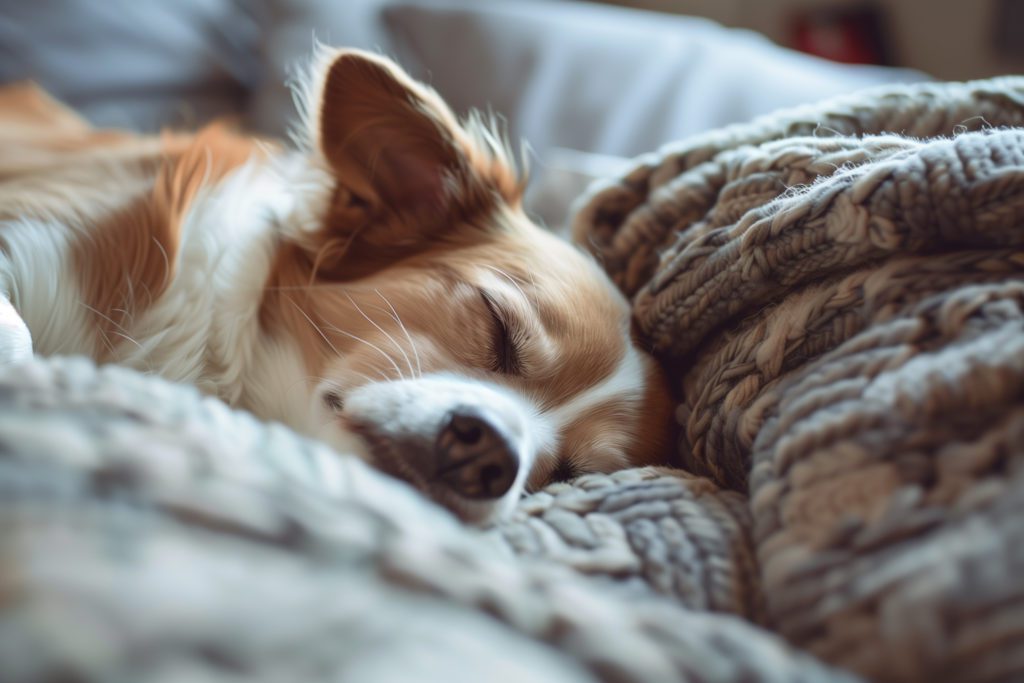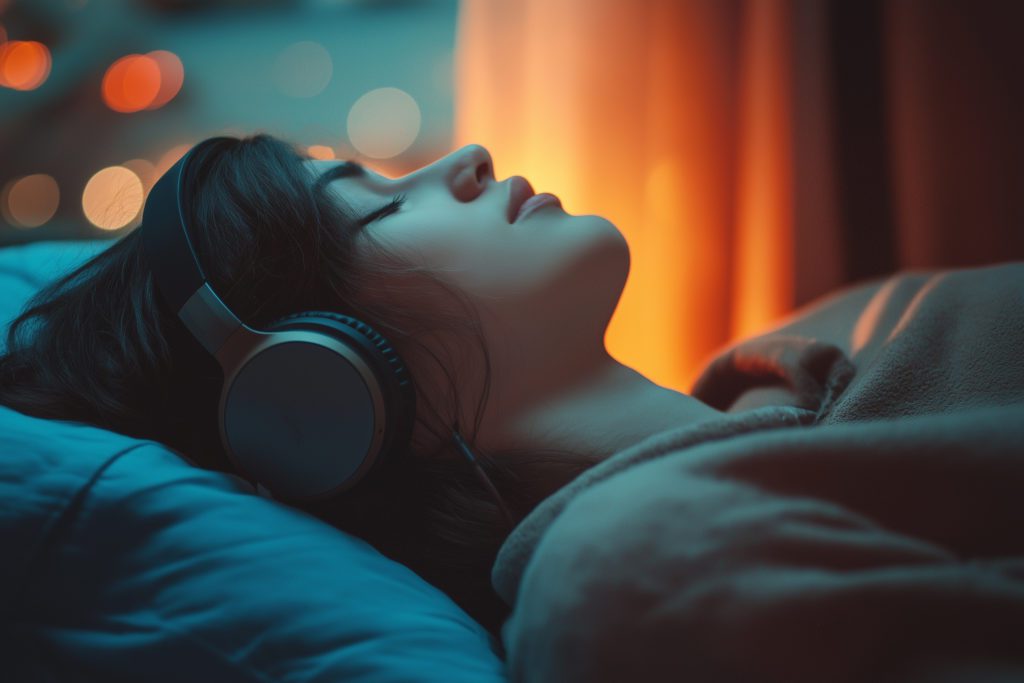
The Vicious Cycle: How Stress and Anxiety Affect Your Sleep
Stress and anxiety can greatly impact your sleep. When you don’t sleep well, it leads to more anxiety. This creates a vicious cycle, making it harder to sleep.

Do you have a lot of anxiety and stress? Has it been affecting your sleep? If you are feeling anxious, then you’ll probably have trouble falling and staying asleep. You might also experience poor, disrupted sleep.
When you don’t sleep well, it worsens anxiety. This creates a vicious cycle. You start to worry about not sleeping. This makes it even harder to sleep. A lack of sleep leads to more worry, which makes it that much more difficult to fall asleep.
Let’s take a closer look at this cycle of anxiety and sleep problems.
What is the Relationship Between Sleep and Anxiety?
It is common for people with anxiety disorders to experience difficulty falling asleep, poor sleep, or frequent awakening. Disturbances in sleep are very common in most anxiety disorders, including generalized anxiety disorder (GAD), post-traumatic stress disorder (PTSD), panic disorder, and obsessive-compulsive disorder (OCD). Excessive worry and anxiety can cause hyperarousal, which results in an increase in heart rate, among other symptoms, and keeps you wide awake.
Experiencing stress can also put you at risk for sleep problems — even if you don’t have an anxiety disorder. High levels of stress can make it take much longer for you to fall asleep. That is because when you are under stress, it causes your brain to release cortisol. This activating hormone disrupts sleep. People who have elevated stress levels have been found to spend less time in a deep sleep. Stress can also cause fragmented sleep patterns where you spend less time in REM sleep.
When you don’t get enough sleep, it can cause even more anxiety and stress and disrupt sleep even more.
The Long-Term Effects of a Lack of Sleep
A lack of sleep can have many negative effects on your health. Here are just a few of the ways in which it can affect you.
- Increased risk of accidents - People who have trouble falling asleep are two times more likely to die in a motor vehicle accident. They are also more likely to die from any type of accident compared to people who don’t have difficulty sleeping.
- Cardiovascular problems - Chronic insomnia increases your risk of cardiovascular disease, including heart attack and stroke. That is because insomnia increases the stress hormone cortisol.
- Weakened immune system - People who don’t sleep well may have trouble fighting off infections. During sleep, your body produces infection-fighting antibodies. When you don’t sleep enough, it interferes with your body’s ability to effectively produce these antibodies.
- Endocrine system problems - Your endocrine system produces essential hormones that you need for thyroid function and other essential body functions. If your sleep is disrupted, it affects hormone production.
- Increases the risk of obesity - Insomnia is associated with increases in body weight. Getting less than seven hours of sleep a night can result in weight changes.
- Dementia and cognitive decline - Over the long run, poor sleep can put someone at higher risk for cognitive decline and dementia. Research has shown that sleep helps the brain get rid of dangerous beta-amyloid proteins that are linked to dementia. When you don’t sleep well, it increases the amount of these proteins in the brain.
How to Escape the Cycle of Anxiety and Sleep Problems
There are numerous ways to reduce stress and help you sleep better. The following approaches can help you get a better night’s rest.
Make Over Your Sleep Environment
It’s important to have a sleep-friendly bedroom. The first thing that you will want to do is eliminate light. Exposure to light suppresses melatonin, which is the hormone that promotes sleep. When this melatonin is suppressed it results in poor sleep. Therefore, invest in blackout curtains to keep the room dark. These curtains will also help reduce outside noise. Reducing noise can help you sleep better. Make sure your room is at the right temperature. Studies have found that between 65 to 70 degrees Fahrenheit is the ideal temperature for sleep. Anything outside this range can negatively impact sleep.
Create a Consistent Sleep Schedule
Most adults need 7 or more hours of sleep a night. Getting less than this is associated with a range of health issues including diabetes, depression, and stroke. Sleeping more than 8 or 9 hours of sleep a night can result in feeling tired the next day, so aim for no more than 9 hours per night. If you have an iPhone, you can use the Sleep Focus setting to create a sleep schedule. It lets you schedule a waketime and bedtime. This is an easy way to automate your sleep schedule. Choose the same wake-up and bedtimes — even on the weekends.
Track Your Sleep
Instead of guessing how many hours of sleep you get each night, you can get exact data by tracking your sleep. Sleep tracking can help you figure out whether or not anxiety truly is affecting your sleep. Some sleep trackers, like Pillow, provide you with sleep quality and disruption metrics. These personalized insights can help you better understand your sleep.
Avoid Alcohol
If you have trouble sleeping due to anxiety, you might be tempted to wind down with a drink. Alcohol is a sedative, so in the short term, it can cause you to feel relaxed and sleepy. You might actually fall asleep faster. However, as alcohol is metabolized by the liver, it lowers the quality of sleep and disrupts the sleep cycle. Studies have found that even drinking low amounts of alcohol can result in poor sleep. Alcohol can also cause you to feel excessively sleepy the next day. This is because it reduces REM sleep.
Talk to Your Doctor or a Therapist
If you are experiencing insomnia or other sleep problems frequently, it’s important to first talk to your doctor. They may want to do blood or other tests to check for issues that can impact sleep. Your doctor might also refer you for a sleep study. Another option is to see a mental health specialist or therapist. A therapist can help you manage anxiety so that it doesn’t impact sleep. They might do a type of cognitive behavioral therapy specifically for insomnia called CBTi.
FAQ
Why does my mind race when I try to fall asleep, and how can I stop it?
It’s so common to feel like your brain is working overtime the second your head hits the pillow. Racing thoughts are often caused by unresolved stress or anxiety. Try keeping a journal by your bed to write down your worries before you sleep, or practice a calming breathing technique. Writing down your worries or creating a to-do list before bed can help clear your mind, reducing the urge to ruminate as you try to fall asleep.
Why do I feel exhausted all day but wide awake at bedtime?
This frustrating pattern is often a sign that stress hormones are keeping your brain alert when you’re trying to wind down. Creating a bedtime routine that signals your body it’s time to relax can help break the cycle. Try dimming the lights, shutting off screens, or listening to calming music.
Is it okay to take a nap if I’ve had a terrible night’s sleep?
A short nap (think 20-30 minutes) can be a lifesaver after a sleepless night, but long naps can mess up your sleep rhythm even more. If you’re desperate, keep it short and aim for earlier in the day.
Why do I wake up in the middle of the night and can’t fall back asleep?
Waking up at 3 a.m. is often caused by stress or an overactive mind. If this happens, try to stay in bed and focus on calming your thoughts. Practice deep breathing, visualize a relaxing scene, or try progressive muscle relaxation to ease tension in your body. Avoid looking at the clock, as this can make you feel more anxious about the time.
How can mindfulness practices improve sleep for people with anxiety?
Mindfulness techniques, such as meditation or deep breathing exercises, can help calm an overactive mind. By focusing on the present moment, these practices reduce racing thoughts and stress, making it easier to relax and fall asleep.
What are the best foods to eat for better sleep and reduced anxiety?
Certain foods, like those rich in magnesium (e.g., spinach, nuts, and seeds), tryptophan (e.g., turkey and bananas), or omega-3 fatty acids (e.g., salmon and walnuts), can promote better sleep and reduce anxiety. Avoiding caffeine and sugar close to bedtime is also helpful.

Written by
Emily Mendez
Emily Mendez is a former therapist and mental health author. She is one of the leading voices in mental health. Emily's writing has appeared in eCounseling, SonderMind, and more. Emily is frequently interviewed by Healthline, Fatherly, INSIDER, Family Circle, and other national media for her advice and expert opinion on the latest mental health topics.
Download Pillow
Get help
Press & News
Legal
Connect
X (Twitter)
Company
Copyright © Neybox Digital Ltd.



